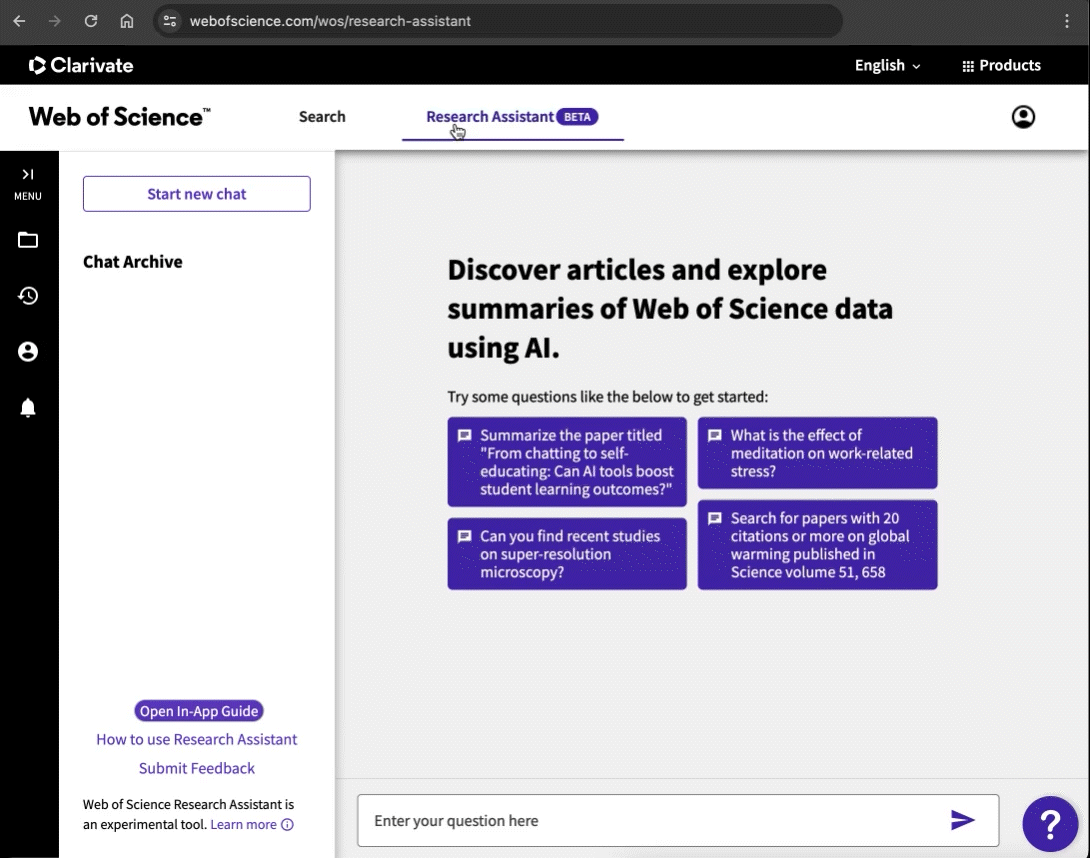We have developed the Clarivate Academic AI Platform that is designed to help us bring existing and new solutions to the market faster and support multiple use cases at scale. The platform will allow us to deliver more capabilities, such as semantic search and more, with a consistent user experience, in a safe and secure environment that ensures user privacy and data security. The platform will serve all Clarivate academic solutions.
The AI Platform is not just about infrastructure. The AI Platform team serves as an AI center of excellence with strong LLM stewardship, supporting the different product teams in using AI responsibly, and providing strong governance to make sure that AI is applied responsibly. The team also works closely with the community. They have built an AI Advisory council, with the goal of sharing insights & findings, evaluating results, gathering feedback from librarians, students, and faculty, mitigating inaccuracies & bias issues, and sharing adoption best practices.





